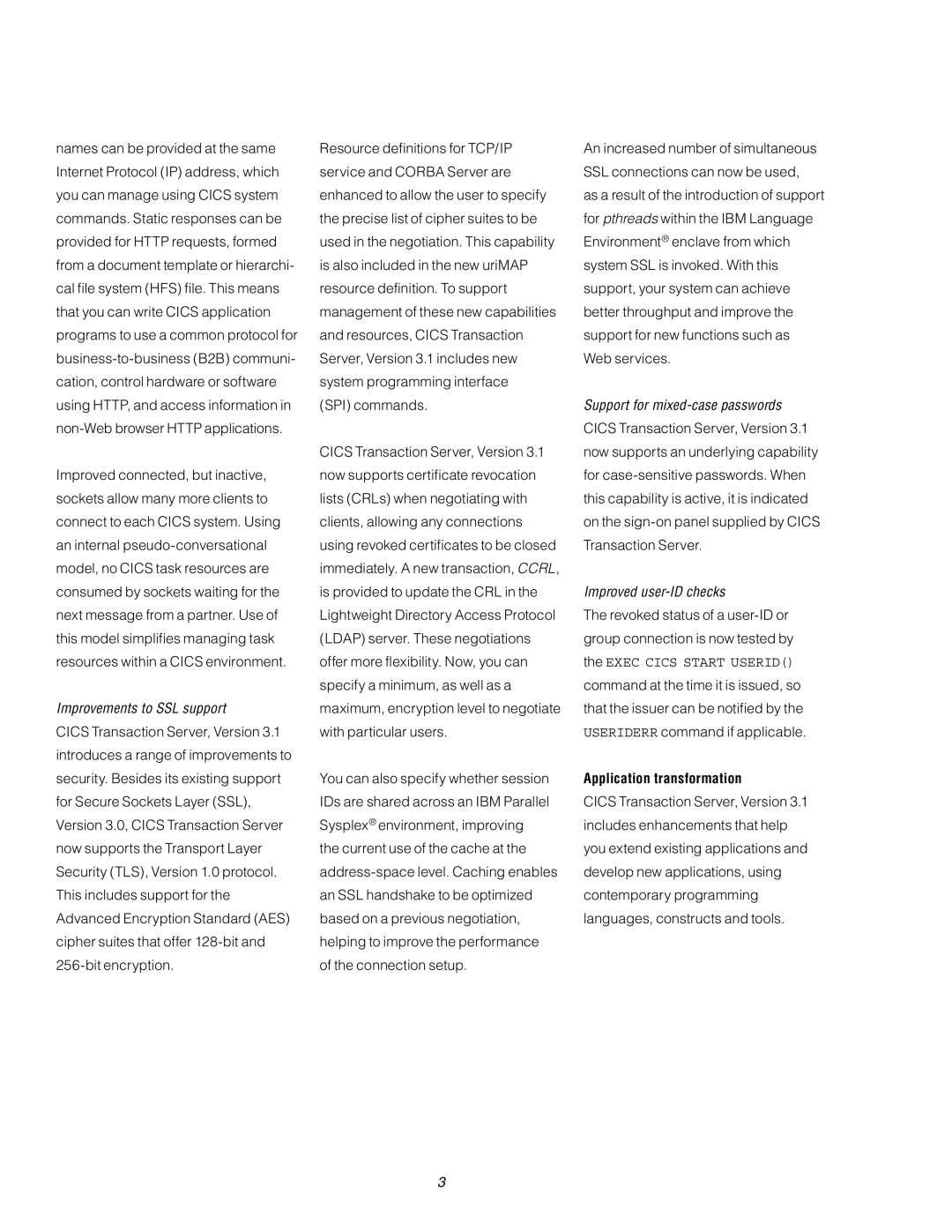3.1 specifications
IBM 3.1 is known for its innovative approach to computing during an era that marked the transition into more advanced personal computing solutions. Launched as part of IBM's line of personal computers, IBM 3.1 was a notable product in the early 1990s, playing a crucial role in shaping the computing landscape.One of the key features of IBM 3.1 was its use of the IBM PC DOS operating system, which provided a solid platform for business applications and productivity tools. The inclusion of a graphical user interface (GUI) improved usability compared to its predecessors, allowing users to navigate through tasks with ease.
The system architecture of IBM 3.1 was based on the Intel 80386 microprocessor, which was a leap forward in processing power and efficiency. It offered compatibility with earlier IBM PC models, making it easier for businesses to transition to newer technologies without losing investment in software and peripherals. The introduction of enhanced memory management capabilities allowed users to run multiple applications simultaneously, dramatically improving productivity.
IBM 3.1 also supported advanced technologies such as plug-and-play hardware components, which simplified system configuration and expanded upgrade potential. This feature allowed users to easily add peripherals like printers, modems, and external storage devices without the need for complex installations.
The integrated networking capabilities of IBM 3.1 enabled better connectivity between computers, fostering collaboration among users in office environments. Support for various networking protocols allowed seamless sharing of resources, which was essential in the growing landscape of networked computing.
In terms of storage, IBM 3.1 offered both hard drive options and upgraded floppy disk drives, catering to different user needs. The system supported a variety of software applications including word processors, spreadsheets, and database management systems, solidifying its place as a valuable tool for productivity.
Overall, IBM 3.1 was a groundbreaking personal computer that combined power, user-friendliness, and adaptability. It was a turning point in the evolution of IBM PCs, influencing the design and functionality of future computing products. With its forward-thinking technologies and robust feature set, IBM 3.1 left a lasting legacy in the world of personal computing.
